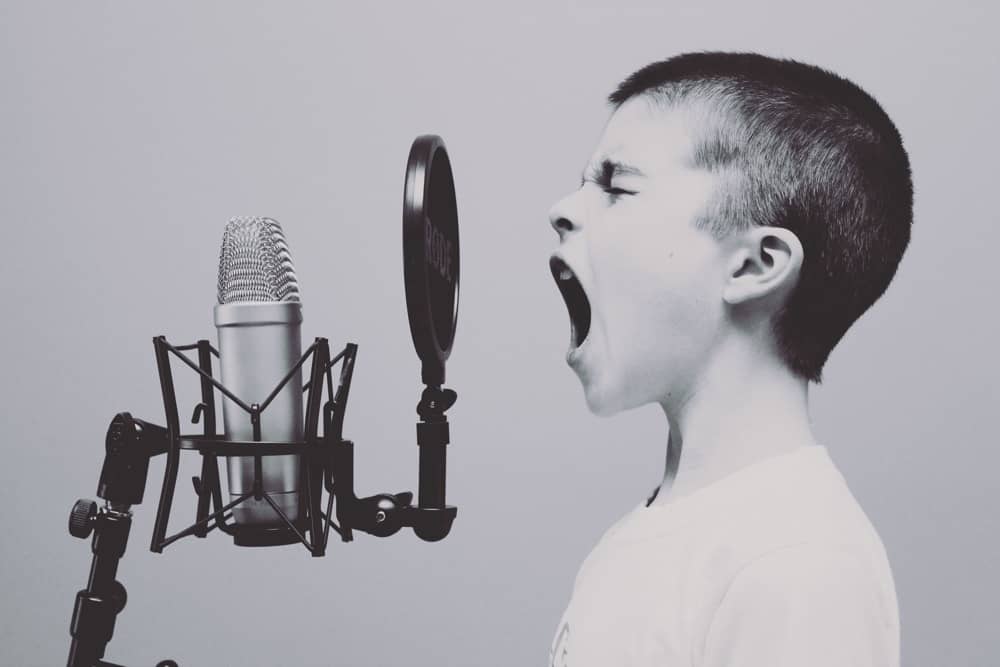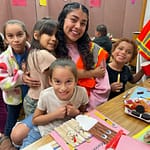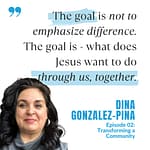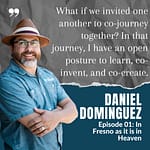Since 1982, the Victim Offender Reconciliation Program (VORP) has been bringing victims, offenders, and involved community members face-to-face to restore wholeness to those affected by crime. Through our restorative justice process, the injustice is recognized and made as right as possible, trust is rebuilt, and the relationship restored. The process holds offenders accountable for their actions, providing them an opportunity to hear how their actions affected others. It also empowers victims, offering them a voice as the parties decide how the offender can rebuild trust, restore equity, and implement necessary changes to ensure a better future. Once the parties reach an agreement, mediators follow up with victims and offenders to confirm that the agreement has been met to the victim’s satisfaction.
The work of VORP continues to transform the community and lives of victims and juvenile offenders through the Community Justice Conferencing (CJC), a collaborative effort between the court, probation, the district attorney, defense counsel and VORP/CJC. This program began with a grant from the California Endowment and is led by The Center for Peacemaking & Conflict Studies.
Daniel and Brian – Restorative Justice
“Daniel, can you tell me what happened?”
“Well.” He looked at his hands. “I said something about Brian’s girlfriend—who I dated last year by the way—and I guess it got around to him. He attacked me from behind during class and I couldn’t even defend myself. I went to the hospital to get two staples in my head, and my lip stitched up.”
“I am so sorry that happened. Thank you for sharing that with me.” I paused, thinking through what I would say next. Eventually, my mouth started moving; the words flowed from a source of passion. “I am a mediator for CJC. Court has partnered with us because they see the value in our program and want to offer you an opportunity to have a voice, share your story, and have a say in what needs to happen moving forward so that you receive the healing that you need. Before today you probably didn’t even know that Brian went to court and was charged with battery.”
“No.” Daniel’s dad interrupted. “We didn’t. You know why? Because no one told me anything.” He crossed his arms and narrowed his gaze. “I went to the school the day of the fight, and you know what they told me? They told me to go home. My son was in the hospital! I pleaded for information, and the people there looked like they were ready to fight me! ‘GO HOME!’ They yelled at me. Why wasn’t my son in court? Why didn’t the judge hear his side of the story? We had to wait five months to hear from you?!”
I was losing my grip on the meeting. ‘Get the emotions under control Grace,’ I encouraged myself. “Sir… I hear you. Believe me; I share your frustration. You have every reason to be angry. You should have been a part of the process from the beginning. I turned my head to focus on Daniel. “I am so sorry. I want to help. I am your advocate. I would like to see you heal, and this process can offer you that. You may not trust Brian, but he is willing to meet with you and make things right—that is something.”
His eyes began to tear up. “No. I don’t want any part of this. So tell the court whatever you need to tell them so that I don’t have to hear from anyone about this ever again.” His jaw set in tight.
I walked them out; defeat followed close behind waiting to swallow me whole.
“Thank you again for meeting with me. I am sorry for any pain I brought up.” I closed the door—the world drained of all color. Overwhelmed by the weight of their grief, I collapsed on the office couch.
Mediating Restorative Justice
Working as a restorative justice mediator takes me on an emotional roller coaster every day. Some mediations elicit incredible feelings of joy and invincibility—they allow you to witness to the power of the gospel and experience new depths of God’s love. Other meetings drop you into a pit of despair, where the wild beast that is our justice system is free to taunt you. So, it is a risky job. If you stay in the pit long enough, you may lose all hope; you might start to believe the system isn’t worth messing with.
Mediators, we bear the weight and absorb the grief of unheard victims. In some cases, so much time has passed since the incident that it is impossible to convince victims that it is in their best interest to meet with their offender. Most conflicts could have been resolved, but they are left unattended, and they spiral out of control. Negligence only causes more conflict, leading to more hurt. Victims build barricades around their wounds, and develop coping strategies, protecting them from vulnerability. Offenders have gone so long without taking accountability for their actions that they can’t map out where they were wrong. Acquaintances, friends, and strangers become enemies because we, as a society, don’t know how to handle conflict.
Our culture misconstrues what victims and offenders need. “He/she needs to be punished because he/she needs to learn his/her lesson,” we say. Or, we think, “Victims need to stay far away from their offenders.” To the contrary, Christopher Marshall, author of Compassionate Justice, acknowledges that victims and offenders hold the key to each other’s healing because only they can restore each other’s honor. Bringing victims and offenders together to talk about what happened can have a profound impact on both parties because “offenders and victims are on parallel journeys of dealing with the crushing impact of shame—for one the shame of harming, and the other, the shame of being harmed.” How can victims receive healing, and restoration if they don’t get to tell their story? How can offenders receive forgiveness and be made new if they never have to take accountability for what they have done?
I dream of the day when we will stop slapping abstract penal codes on circumstantial conflicts, then dishing out appropriate punishments and considering the case closed. I pray for and grieve alongside the many offenders who are also victims—the situation is hardly ever black and white. While I journey with them through the darkness, I focus my eyes on the society I imagine—one where coaches, teachers, bus drivers, police officers, pastors, neighbors, etc. are all trained mediators, and people are free to handle conflict with honesty and humility.
Jesus to Heal Conflict
Despite the grief and roller coaster of emotions, I keep working as a mediator because my heart longs for sacred space. Whatever led Jesus to the cross, whatever profound love for-otherness that was alive in him as he forgave his perpetrators, comes alive in us as we pursue reconciliation with our enemies. During this delicate and vulnerable process, Christ is present; he absorbs the pain, offering healing and transformation. The 6th grader, who vandalized his school, causing thousands of dollars in damage, becomes the leader of the new campus beautification team. The teacher, who was punched while trying to break up a fight, becomes a mentor. The 8th grader whose phone was stolen receives full restitution. The son, who got into a fistfight over dinner, prepares a meal for his family and friends.
Jesus, our hope, continues to lead me out of the pit, shining light into the darkness and despair. Victims and offenders need healing; they need someone to believe in them, to believe that they were created in the image of a forgiving and loving God. Even though restorative justice is outside of everything we think victims and offenders need, I continue to live according to the vision of the kingdom, believing that even enemies are capable of love and pursuing peace.
For additional information about the program, please contact VORP/CJC at 559-453-3472. Also, if you would like to join this pursuit of peace by becoming a trained mediator, our next mediation training is September 9, 2017. Registration available at: www.vorp-sept2017.eventbrite.com
Photo by Jason Rosewell on Unsplash







Leave a Reply